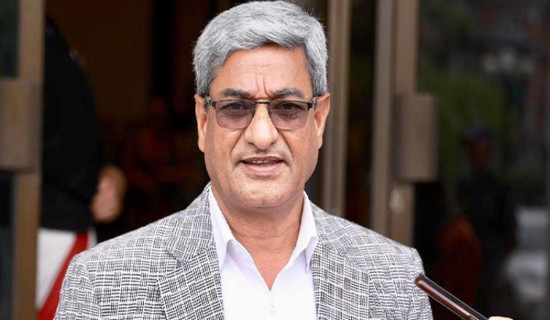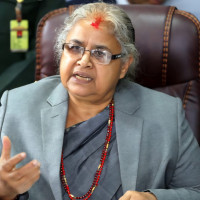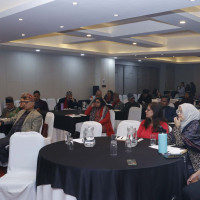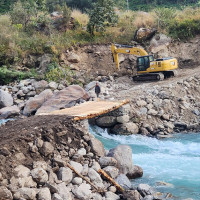- Thursday, 25 December 2025
Bajura’s Malika Secondary School draws crowd of students
By Sher Bahadur Sarki,Bajura, May 13: Teachers of many community schools still roam the nearby settlements at the beginning of the new academic session. They visit the villages requesting the locals to enrol their children in the respective community school.
However, the scenario has, of late, changed. Many government schools across the country have begun the new academic session of 2023 since mid-April with a notable number of students. Malika Secondary School in Ward No. 8 of Badimalika Municipality in Bajura district, is an example of this change.
However, Malika Secondary School (MSS) is also together with other government schools on the list demanding more investment in quality manpower and resources.
“We want to provide education to as many students as possible. However, we had to conduct an entrance examination to reduce the number of students as we lacked the resources to accommodate and teach all those wanting to admit to our school,” said Sher Bahadur Rawal, information officer for the MSS. After the entrance examination, the MSS which runs classes from 1 to 12 began its new academic session with 2,215 students, including 1,125 girls and 1,090 boys.
“I studied in a private boarding school earlier. I got enrolled in MSS last year. After studying for a year, I can say that the MSS is the best and I made the correct decision of enrolling here,” said Bikesh Nath, a student in the MSS.
“We have been trying to improve the quality of education and, like other community schools, change the concept of locals that government schools can also be the best place for their children,” said Shubharaj Timilsena, headmaster of the MSS.
The school is operating in two shifts, morning and afternoon, with 62 teachers and employees under the government and the school’s own sources.
Similarly, there are courses in civil sub-engineering and assistant civil sub-engineering. For the past two years, the school has also been running classes in English medium from 1 to 5 and both Nepali and English mediums from 6-12.
“Government establishes schools to provide quality education for free and it is possible across the country. We can see how government schools are improving, so there should be more investment and support,” said Headmaster Timilsena.
According to Timilsena, investing in physical infrastructure and digital gadgets alongside training for teachers would help improve the standards of government schools further.
“Some government schools are achieving more than their capacity with the limited resources. If there is no more support now, we could lose this opportunity of making government schools the first priority of locals,” said Timilsena.
Headmaster Timilsena also said that the school currently lacked proper buildings, drinking water facilities and teaching materials.
“We are also short of the budget as many teachers should be paid with the school’s earnings, which is also not sufficient.”
















